Articles & Interviews
This site features original English articles and interviews as well as translated content from Espace Francophone Jungien.
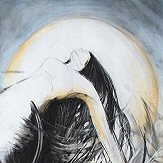 Radical ordinariness: John McNeil and the alchemy of jazz
Radical ordinariness: John McNeil and the alchemy of jazz
Trumpet artist Ryan Nielsen explores jazz through the lens of alchemy in homage to his mentor, John McNeil. A waking dream image pulled him from his Mormon upbringing to Boston to study with McNeil, whose approach centers on radical ordinariness and self-acceptance as the heart of the alchemical opus. The piece is threaded with musical links.
Ryan Nielsen, DMA
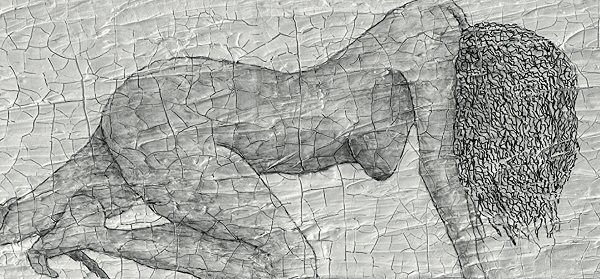 Exploring the Puella archetype: Girl unfolding
Exploring the Puella archetype: Girl unfolding
Puella represents the young feminine on the brink of becoming and at a crossroads. This article explores this feminine archetype through archetypal images, etymology, and its alignment with the mythological maiden. We learn about ourselves by examining the puella’s roles and enactments, assumptions and perceptions, acquired consciously and unconsciously.
Susan E. Schwartz, PhD
 Visit of the house of Emma and C.G. Jung
Visit of the house of Emma and C.G. Jung
Reflections on the home of Emma and Carl Gustav Jung highlight the alchemical symbolism in the objects of their shared lives, shedding light on their dynamic partnership. The house also evokes Jung’s Swiss heritage, inspiring a creative engagement with the past and a deeper connection to cultural grounding.
Rachel Huber & Bernard Hort
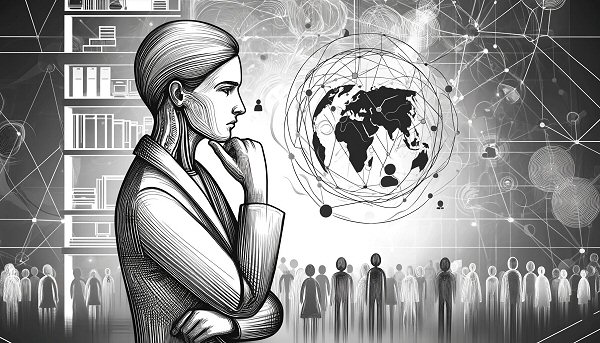 Humanity’s challenge in the face of Artificial Intelligence
Humanity’s challenge in the face of Artificial Intelligence
Advances in AI are making headlines. They offer promising prospects but also pose real threats. This article discusses several of these aspects and emphasizes the need to find a balance in response to these developments, starting with a return to self.
Jean-Pierre Robert
 Paranoia or Lucid Madness
Paranoia or Lucid Madness
In his book Paranoia: The Madness That Makes History, Luigi Zoja offers a multidimensional analysis of paranoia, illuminating historical events through a psychological lens. This essential read provides crucial insights into the dangers of this « lucid madness » and its implications for our contemporary world.
Top Pick by Claire Droin
 Dune: Was Frank Herbert inspired by C.G. Jung?
Dune: Was Frank Herbert inspired by C.G. Jung?
The release of the 2021 and 2024 Dune films reignited interest in Frank Herbert’s epic saga. This article examines how Jung’s theories—particularly his concepts of the unconscious—are reflected in Herbert’s work, with a focus on how some of Jung’s boldest ideas emerge in Whipping Star.
Ariane Callot, Doctor of philosophy
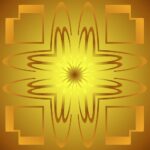 Homeopathy and synchronicity
Homeopathy and synchronicity
In accordance with the work of C.G. Jung, this article explains how homeopathy can escape the law of causality in some aspects by relying on meaning through meaning: synchronicity.
Bernard Long, M.D.
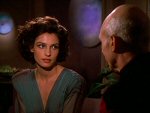 Holding the tension of the erotic transference: embodying Captain Picard in Star Trek’s “The Perfect Mate”
Holding the tension of the erotic transference: embodying Captain Picard in Star Trek’s “The Perfect Mate”
This article explores how a therapist can accompany the type of patient whose healing and transformation depend on being given a second chance to experience a healthy parental first love through the myth of Star Trek.
Peggy Vermeesch, PhD
 Toni Wolff’s structural forms of the feminine psyche
Toni Wolff’s structural forms of the feminine psyche
As a complement to C.G. Jung’s theory of the psychological functions Wolff developed an innovative theory of the feminine psyche. One path to individuation is integrating all four structural forms or types. This is equally true for women and men, regardless of their gender identity or sexual orientation.
Peggy Vermeesch, PhD
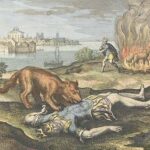 Crying wolf! The homeopathic remedy lycopodium clavatum
Crying wolf! The homeopathic remedy lycopodium clavatum
Lycopodium clavatum is a very important remedy in the homeopathic pharmacopoeia. It is haunted by its territory, by the concern of size and greatness. It is the remedy of the authoritarian crisis, of the separation from the symbiosis where the subject is confronted with the paternal function.
Bernard Long, M.D.
The need to acknowledge the archetypal forces within
 The archetypal forces that are active deep within our unconscious call for expression, somehow, whether we ask for it or not, and whether we want it or not. Our ego is instrumental in reducing the raw power of these archetypal forces.
The archetypal forces that are active deep within our unconscious call for expression, somehow, whether we ask for it or not, and whether we want it or not. Our ego is instrumental in reducing the raw power of these archetypal forces.
Peggy Vermeesch, PhD
 Theater of Shadows & In Search of the Self: An interview with Lucas Costanzi
Theater of Shadows & In Search of the Self: An interview with Lucas Costanzi
The Brazilian filmmaker Lucas Costanzi discusses his two documentaries inspired by Jungian thought: Theater of Shadows and In Search of the Self. These films explore the significance of the shadow and the inner journey that leads to our deepest self: a path that distances us from the influences of the surrounding collective.
Interview by Jean-Pierre Robert
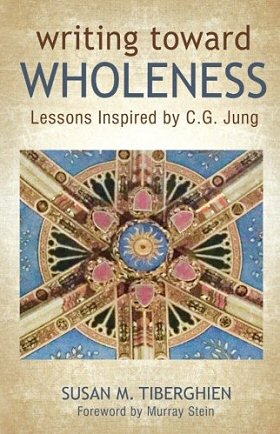 Writing Toward Wholeness: An interview with Susan Tiberghien
Writing Toward Wholeness: An interview with Susan Tiberghien
Susan Tiberghien reflects on her journey as a writer, the transformative power of journaling, and Jung’s influence on her work. She emphasizes the importance of keeping your own Red Book and writing to your soul.
Interview by Jean-Pierre Robert
 The Decline of Sexuality: An interview with Luigi Zoja
The Decline of Sexuality: An interview with Luigi Zoja
Luigi Zoja reflects on the ongoing decline of sexuality, shedding light on a significant issue that has long been overlooked. He examines the complexities and paradoxes facing contemporary generations as they navigate this profound transformation.
Interview by Claire Droin
 Individuation of Analytical Psychology: An interview with Mark Saban
Individuation of Analytical Psychology: An interview with Mark Saban
Mark Saban, author of Two Souls Alas: Jung’s Two Personalities and the Making of Analytical Psychology discusses the book’s core premise, its clinical implications, and his motivations for writing it. He argues that for the Jungian world to individuate, the personal and the archetypal must meet and be brought into tension with one another.
Interview by Peggy Vermeesch, PhD
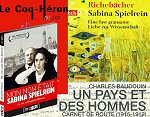 Sabina Spielrein’s life and destiny
Sabina Spielrein’s life and destiny
This article draws on Jungian typology to offer a fresh perspective on Sabina Spielrein’s complex journey. Tragically, the destructive forces that Spielrein insightfully described in 1912 and relentlessly opposed throughout her life would ultimately prevail.
Jean-Pierre Robert
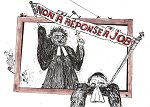 Answer to Job: Jung and his critics
Answer to Job: Jung and his critics
This article explores Jung’s 1951-1954 correspondence with theologians such as Victor White and Dorothee Hoch in order to delve into the contentious reception of « Answer to Job ». This analysis highlights the key arguments and insights from these letters, providing a deeper understanding of the criticisms Jung faced.
Ariane Callot, Doctor of philosophy
 Shadow and Evil in Star Trek
Shadow and Evil in Star Trek
In light of Jungian analyst Erich Neumann’s theories of the New Ethic, I explore the collective unconscious in its devouring and destructive shadow aspect, as illustrated by the Borg in Star Trek.
Peggy Vermeesch, PhD
- Star Trek’s Borg: The collective unconscious in its devouring and annihilating shadow aspect (1/3)
- Collective shadow projection and scapegoating: Skin of Evil (2/3)
- The new Borg in Star Trek Picard: Transformation of the collective shadow (3/3)
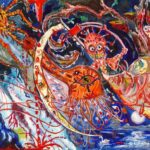 C.G. Jung, Gerard de Nerval, and Aurelia
C.G. Jung, Gerard de Nerval, and Aurelia
This essay illustrates the all-time importance of facing your shadow. The article discusses why Jung was so deeply moved by French romantic poet Gérard de Nerval’s literary Aurélia.
Ariane Callot, Doctor of philosophy
 Narcissism in fairy tales such as Mary’s Child, Snow White and others
Narcissism in fairy tales such as Mary’s Child, Snow White and others
Growing up with a narcissistic parent has long-term harmful effects. This series of articles explores what fairy tales can teach us in terms of breaking this cycle of intergenerational trauma.
Peggy Vermeesch, PhD
- What fairy tales can teach us about healing from early trauma and narcissistic abuse (1/3)
- Tricked into carrying someone else’s shadow (2/3)
- Intergenerational trauma and healing (3/3)
 Subscribe to our newsletter
Subscribe to our newsletter
By subscribing to our newsletter, you will receive updates directly to your inbox on newly published articles, interviews, book presentations, top picks, and events from the Jungian world.
